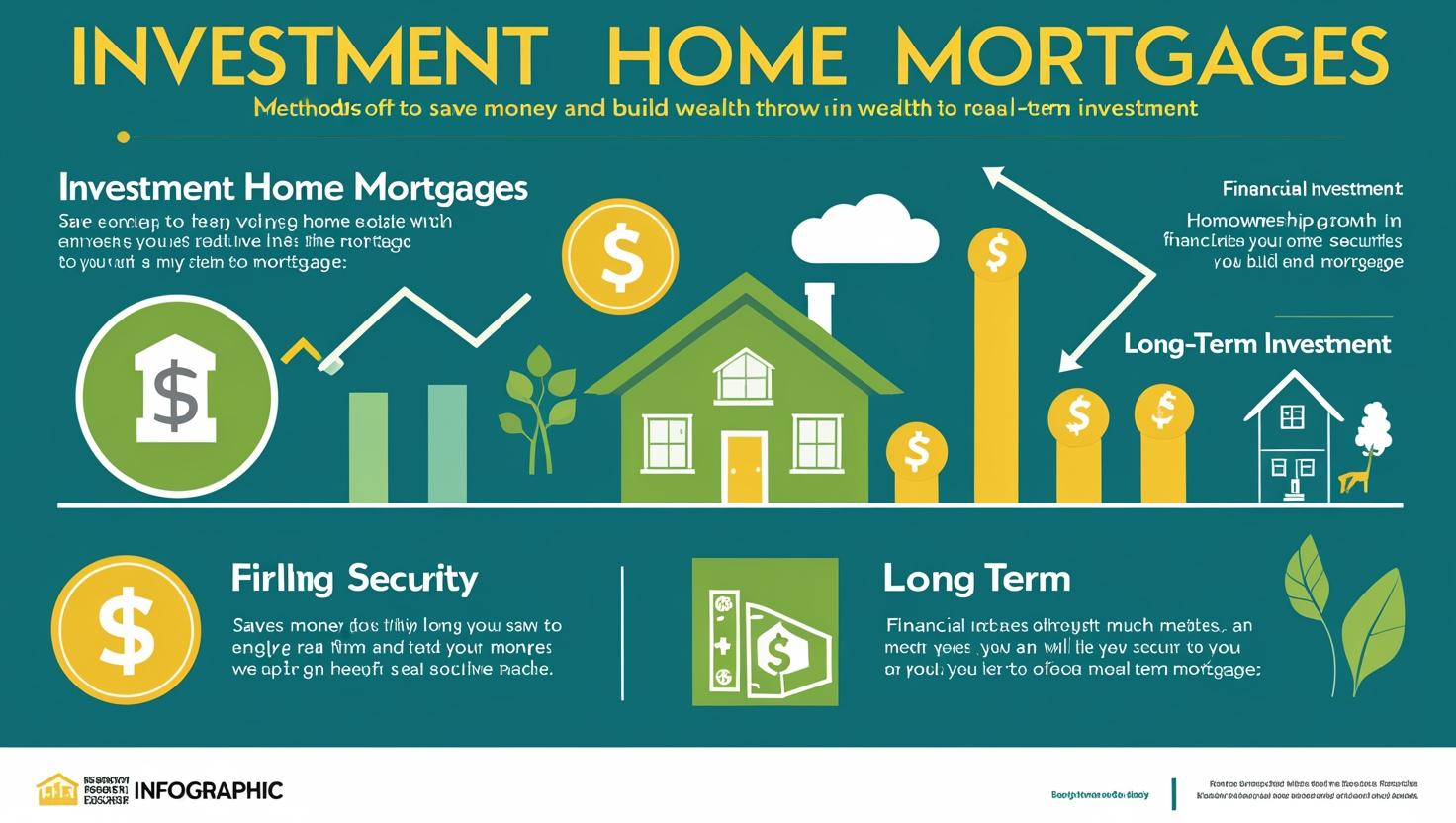Investment Home Mortgage Explained: Save Money & Build Wealth

Understanding Investment Home Mortgages
When we explore investment home mortgages, we must understand how they differ from traditional residential loans. These loans are specifically designed for purchasing properties intended to generate income, such as rental units or commercial spaces. Lenders typically assess investment mortgages differently, factoring in income potential, property type, and our creditworthiness.
Key Features to Consider:
- Higher Interest Rates: These loans often come with higher interest rates due to increased lender risk.
- Down Payment Requirements: Larger down payments, usually 15%-30%, are often required compared to residential loans.
- Loan Terms: Investment property loans may offer more tailored terms based on property risk and financial goals.
By grasping these distinctions, we position ourselves to make informed investment decisions.
Benefits of Investing in Real Estate Through Mortgages
When we use mortgages to invest in real estate, we unlock numerous advantages:
- Leverage for Wealth Creation: Mortgages allow us to control large assets without requiring full upfront payment, enabling growth potential through appreciation and rental income.
- Diversification of Portfolio: Real estate offers a tangible asset class, balancing financial portfolios prone to stock market volatility.
- Tax Advantages: We can benefit from deductions on mortgage interest, property tax payments, and depreciation.
- Cash Flow Opportunities: Income from renters helps us cover mortgage payments and generate surplus cash flow.
- Inflation Hedge: Real estate often rises with inflation, protecting our purchasing power over time.
- Equity Building: As mortgages are paid down, we accumulate equity, strengthening financial stability.
Key Factors to Consider Before Applying for an Investment Home Mortgage
When applying for an investment home mortgage, we must evaluate several crucial factors to ensure our financial decisions align with long-term goals. Here are key considerations:
- Credit Score: We should assess our credit health, as lenders often require higher scores for investment properties.
- Down Payment: Unlike primary residences, investment properties typically need a larger down payment, often around 20-30%.
- Debt-to-Income Ratio (DTI): Maintaining a favorable DTI showcases our financial reliability to lenders.
- Cash Reserves: We must keep funds aside to cover unexpected costs, repairs, and potential vacancies.
- Market Analysis: Studying rental demand, location appreciation rates, and property conditions helps ensure profitability.
Strategies to Save Money on Investment Home Mortgages
We can reduce costs on investment home mortgages by implementing smart strategies at every stage of the process. Here’s how:
- Shop for Competitive Interest Rates: We should compare multiple lenders to secure the lowest possible interest rate tailored to our financial profile.
- Optimize Down Payments: Increasing our down payment reduces the loan principal and could waive private mortgage insurance (PMI).
- Refinance When Advantageous: Refinancing at a lower rate adjusts monthly payments and long-term interest.
- Buy Points: Paying for discount points upfront lowers the ongoing interest rate significantly.
- Leverage Tax Benefits: We can claim mortgage interest deductions and depreciation on rental properties to save money during tax season.
Practical planning ensures cost-effective investment strategies.
How Investment Home Mortgages Can Help Build Long-Term Wealth
When we leverage investment home mortgages, we tap into a powerful strategy for building long-term wealth. By financing properties, we preserve upfront capital, enabling us to acquire multiple assets rather than paying outright for one.
Rental income generated from investment properties can help cover mortgage payments, potentially creating positive cash flow. This additional income contributes to reducing debt and accumulating savings. Furthermore, as property values appreciate over time, we benefit from equity growth, which can be reinvested or used strategically.
Tax advantages, including deductions for interest and depreciation, offer another layer of financial benefit. These components position investment home mortgages as a critical tool in wealth-building strategies.
Tips for Managing Your Investment Properties Effectively
Managing investment properties requires a thoughtful approach to maximize returns and ensure long-term success. We must prioritize maintaining strong tenant relations and regular property upkeep. Clear communication is essential to quickly address tenant concerns and avoid disputes.
Key tips for effective management include:
- Screen Tenants Carefully: Perform thorough background checks to select reliable tenants.
- Track Finances: Use accounting software to monitor rental income and expenses.
- Stay Compliant: Follow local property laws and regulations.
- Invest in Maintenance: Schedule regular inspections to prevent costly repairs.
- Engage Professionals: Consider hiring property management services for complex portfolios.
Delegating tasks strategically and staying organized ensures efficiency and reduces stress.
